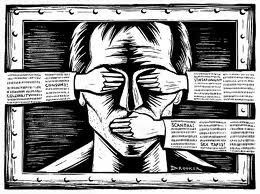Fuentes said that he never wanted to leave Cuba, but seven years of incarceration made it too hard to stay. "It was a difficult decision, but even more difficult was to turn down the offer and remain in jail," he explained.
Fuentes, a freelance reporter originally based in the city of Artemisa, began serving a 26-year prison term in March 2003. He arrived in Madrid shortly after noon on Friday, accompanied by ten members of his family.
In July, the Catholic Church brokered an agreement with Cuban authorities to release 52 political prisoners who were arrested seven years ago, during a massive government crackdown on political dissent and independent journalism. Spanish government officials also participated in the talks.
All 17 of the reporters released so far have been immediately flown to Spain. (One has since relocated to Chile.)
Three journalists arrested in the 2003 crackdown remain in jail, along with another journalist imprisoned at a later time, CPJ research shows. The first three--including CPJ awardee Héctor Maseda--have already expressed their desire to stay in Cuba upon release, the reporters' families told CPJ.
A story published in September by the Madrid-based daily El País quoted Spanish officials as saying that imprisoned reporters who want to stay in Cuba upon release will be freed through a parole program. The Cuban government has not confirmed the existence of such a program.
Below is a capsule report on Fuentes' case from CPJ's annual census of jailed journalists, conducted in December 2009.
Alfredo Felipe Fuentes, freelance
Imprisoned: March 19, 2003
Fuentes, an economist by training, began working for the Cuban independent press in 1991. On March 19, 2003, he was arrested after a raid on his home in the city of Artemisa. The next month, the freelance reporter was convicted of violating Article 91 of the Cuban penal code, which imposes harsh penalties for acting against "the independence or the territorial integrity of the state." A judge in western Havana province handed him a 26-year prison sentence.
The 60-year-old journalist was being held at the maximum-security Guanajay Prison, his wife, Loyda Valdés González, told CPJ. Valdés González, who is allowed to visit her husband only once every 45 days, said conditions at Guanajay were better than those at other prisons where he had been held. Due to his severe back problems, the reporter did not share a cell with other prisoners. Valdés González said her husband suffered from chronic gastritis that caused him to lose significant amounts of weight.
Valdés González told CPJ that in December 2007, her husband presented an appeal to Cuba's Supreme Tribunal Court. Because Cuban authorities denied Fuentes access to a lawyer, he did so without benefit of counsel. After two years, the court had still not responded to him, Valdés González told CPJ.
From: CPJ

No comments:
Post a Comment